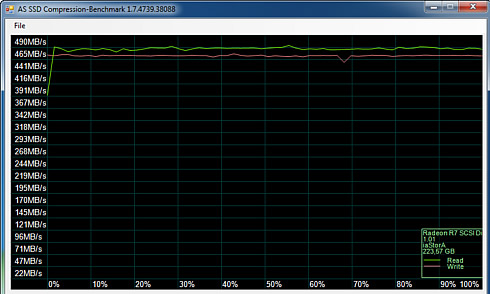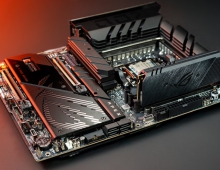AMD Radeon R7 240GB SSD review
6. AS SSD benchmark
We move on with the AS SSD benchmark, which contains five synthetic as well as three practical tests. The synthetic tests determine the sequential and the random read / write performance of an SSD. These tests are carried out without using the operating system's cache. The Seq-test measures how long it takes to read and write an 1GB file. Most importantly, this sequential benchmark uses incompressible data for all of its transfers.
The 4K benchmark tests the read and write performance for random 4K blocks. The 4K-64-THRD-test corresponds to the 4K procedure except that here the read and write operations are distributed on 64 threads:

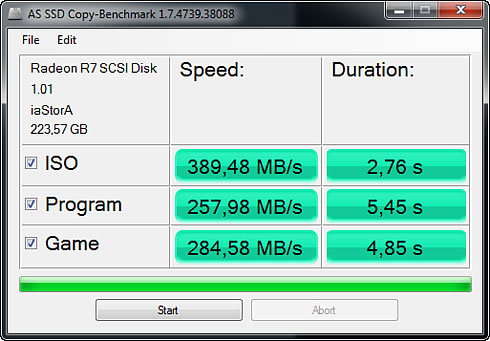
The R7's performance in sequential reading with incompressible test was not very high (481.4 MB/s), and as you see below it is placed somewhere in the middle of the graph. The same applies for sequential writing, where the drive wrote the incompressible files at 477 MB/s (average).
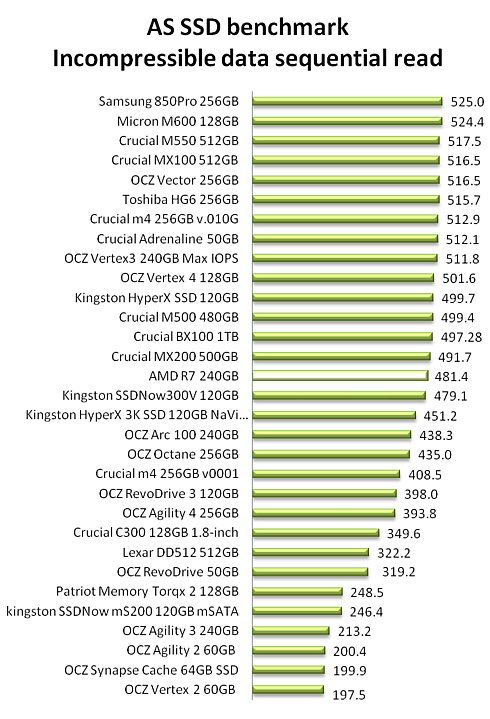

At the 4K random reading tests, the Radeon R7 240GB SSD performed better and was positioned placed near the top of the pack, with an average reading speed of 25 MB/s.

But without a doubt, the AMD's SSD did it pretty well in the 4K random writing tests with 86.9 MB/s:

Multi-threaded requests for random reading of 4K incompressible files were easier to handle for R7 drive, as it managed to score a very high 370.7 MB/s.
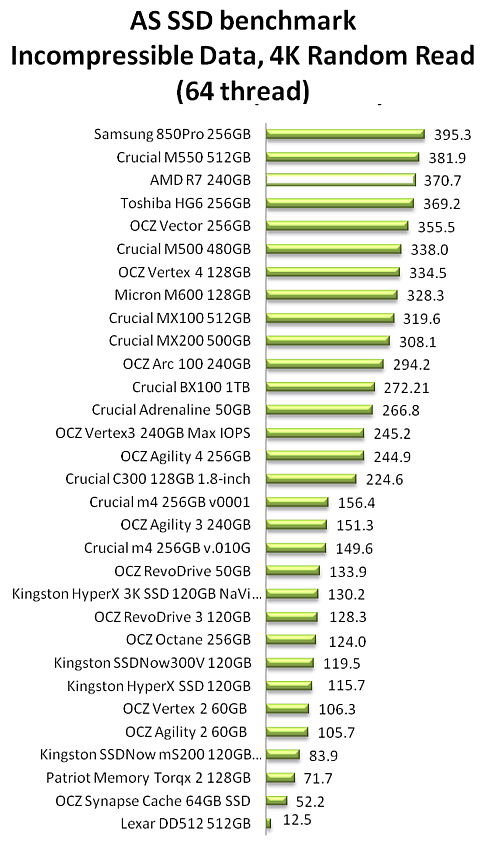
The AMD Radeon SSD was pretty close to the top in the 4K random write (QD64) test with 325.9 MB/s.

In the following graph you see how the AMD Radeon R7 240GB SSD reads and writes files, which have been partially of fully compressed. It is obvious that the both reading and writing speeds do not depend on level of file compression:
